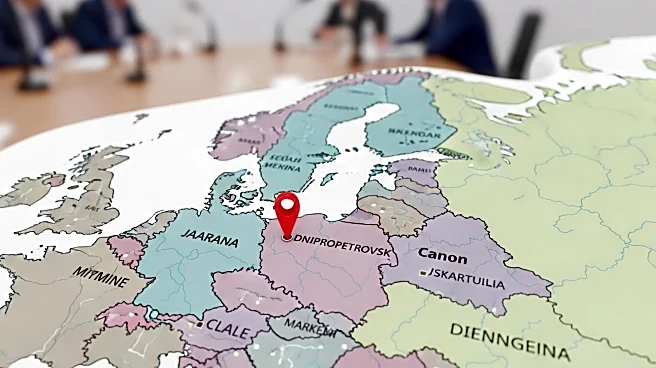What's Happening?
Russian forces have entered the Dnipropetrovsk region of Ukraine, marking the eighth region affected by the ongoing conflict. This development comes as peace efforts led by the U.S. struggle to gain traction. Russian troops have reportedly moved into villages in the eastern Dnipropetrovsk region, an area adjacent to the fiercely contested Donetsk region. Despite claims by Russia's Defense Ministry of capturing these villages, Ukrainian forces continue to resist, preventing Russian troops from establishing fortifications. The front line of the conflict stretches over 620 miles, with significant casualties reported on both sides. Russia's occupation of Ukrainian territories, including Crimea, remains a contentious issue, with Western leaders accusing President Vladimir Putin of delaying peace negotiations.
Why It's Important?
The expansion of Russian forces into Dnipropetrovsk underscores the ongoing challenges in achieving a lasting peace in Ukraine. The region is a key industrial center, and its capture would represent a strategic gain for Russia. The conflict has significant implications for international relations, particularly between Russia and Western nations. The presence of Russian troops in additional regions heightens the risk of further escalation, potentially drawing in more international involvement. The situation also impacts global energy markets, as Ukraine's infrastructure is targeted, affecting energy supplies. The continued resistance by Ukrainian forces highlights the resilience of the nation but also the strain on its military resources.
What's Next?
Ukraine has accepted U.S. proposals for a summit with President Putin and a ceasefire, but Russia remains skeptical of postwar security guarantees proposed by Western nations. The deployment of European troops in Ukraine as part of these guarantees is deemed unacceptable by Moscow. Diplomatic efforts are ongoing, with the U.S. pushing for direct peace talks. President Trump has indicated a decision on next steps if talks are not scheduled soon. The international community continues to monitor the situation closely, with potential implications for NATO and European security policies.









